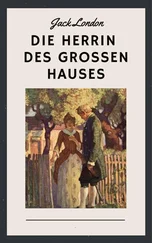Jack London - John Barleycorn
Здесь есть возможность читать онлайн «Jack London - John Barleycorn» весь текст электронной книги совершенно бесплатно (целиком полную версию без сокращений). В некоторых случаях можно слушать аудио, скачать через торрент в формате fb2 и присутствует краткое содержание. Жанр: Классическая проза, на английском языке. Описание произведения, (предисловие) а так же отзывы посетителей доступны на портале библиотеки ЛибКат.
- Название:John Barleycorn
- Автор:
- Жанр:
- Год:неизвестен
- ISBN:нет данных
- Рейтинг книги:3 / 5. Голосов: 1
-
Избранное:Добавить в избранное
- Отзывы:
-
Ваша оценка:
- 60
- 1
- 2
- 3
- 4
- 5
John Barleycorn: краткое содержание, описание и аннотация
Предлагаем к чтению аннотацию, описание, краткое содержание или предисловие (зависит от того, что написал сам автор книги «John Barleycorn»). Если вы не нашли необходимую информацию о книге — напишите в комментариях, мы постараемся отыскать её.
John Barleycorn — читать онлайн бесплатно полную книгу (весь текст) целиком
Ниже представлен текст книги, разбитый по страницам. Система сохранения места последней прочитанной страницы, позволяет с удобством читать онлайн бесплатно книгу «John Barleycorn», без необходимости каждый раз заново искать на чём Вы остановились. Поставьте закладку, и сможете в любой момент перейти на страницу, на которой закончили чтение.
Интервал:
Закладка:
"But you, who have opened the books and who share my awful confidenceyou know him for what he is, brother to you and the dust, a cosmic joke, a sport of chemistry, a garmented beast that arose out of the ruck of screaming beastliness by virtue and accident of two opposable great toes. He is brother as well to the gorilla and the chimpanzee. He thumps his chest in anger, and roars and quivers with cataleptic ferocity. He knows monstrous, atavistic promptings, and he is composed of all manner of shreds of abysmal and forgotten instincts."
"Yet he dreams he is immortal," I argue feebly. "It is vastly wonderful for so stupid a clod to bestride the shoulders of time and ride the eternities."
"Pah!" is the retort. "Would you then shut the books and exchange places with this thing that is only an appetite and a desire, a marionette of the belly and the loins?"
"To be stupid is to be happy," I contend.
"Then your ideal of happiness is a jelly-like organism floating in a tideless, tepid twilight sea, eh?"
Oh, the victim cannot combat John Barleycorn!
"One step removed from the annihilating bliss of Buddha's Nirvana," the White Logic adds. "Oh well, here's the house. Cheer up and take a drink. We know, we illuminated, you and I, all the folly and the farce."
And in my book-walled den, the mausoleum of the thoughts of men, I take my drink, and other drinks, and roust out the sleeping dogs from the recesses of my brain and hallo them on over the walls of prejudice and law and through all the cunning labyrinths of superstition and belief.
"Drink," says the White Logic. "The Greeks believed that the gods gave them wine so that they might forget the miserableness of existence. And remember what Heine said."
Well do I remember that flaming Jew's "With the last breath all is done: joy, love, sorrow, macaroni, the theatre, lime-trees, raspberry drops, the power of human relations, gossip, the barking of dogs, champagne."
"Your clear white light is sickness," I tell the White Logic. "You lie."
"By telling too strong a truth," he quips back.
"Alas, yes, so topsy-turvy is existence," I acknowledge sadly.
"Ah, well, Liu Ling was wiser than you," the White Logic girds. "You remember him?"
I nod my headLiu Ling, a hard drinker, one of the group of bibulous poets who called themselves the Seven Sages of the Bamboo Grove and who lived in China many an ancient century ago.
"It was Liu Ling," prompts the White Logic, "who declared that to a drunken man the affairs of this world appear but as so much duckweed on a river. Very well. Have another Scotch, and let semblance and deception become duck-weed on a river."
And while I pour and sip my Scotch, I remember another Chinese philosopher, Chuang Tzu, who, four centuries before Christ, challenged this dreamland of the world, saying: "How then do I know but that the dead repent of having previously clung to life? Those who dream of the banquet, wake to lamentation and sorrow. Those who dream of lamentation and sorrow, wake to join the hunt. While they dream, they do not know that they dream. Some will even interpret the very dream they are dreaming; and only when they awake do they know it was a dream. Fools think they are awake now, and flatter themselves they know if they are really princes or peasants. Confucius and you are both dreams; and I who say you are dreamsI am but a dream myself.
"Once upon a time, I, Chuang Tzu, dreamt I was a butterfly, fluttering hither and thither, to all intents and purposes a butterfly. I was conscious only of following my fancies as a butterfly, and was unconscious of my individuality as a man. Suddenly, I awaked, and there I lay, myself again. Now I do not know whether I was then a man dreaming I was a butterfly, or whether I am now a butterfly dreaming I am a man."
CHAPTER XXXVII
"Come," says the White Logic, "and forget these Asian dreamers of old time. Fill your glass and let us look at the parchments of the dreamers of yesterday who dreamed their dreams on your own warm hills."
I pore over the abstract of title of the vineyard called Tokay on the rancho called Petaluma . It is a sad long list of the names of men, beginning with Manuel Micheltoreno, one time Mexican "Governor, Commander-in-Chief, and Inspector of the Department of the Californias ," who deeded ten square leagues of stolen Indian land to Colonel Don Mariano Guadalupe Vallejo for services rendered his country and for moneys paid by him for ten years to his soldiers.
Immediately this musty record of man's land lust assumes the formidableness of a battlethe quick struggling with the dust. There are deeds of trust, mortgages, certificates of release, transfers, judgments, foreclosures, writs of attachment, orders of sale, tax liens, petitions for letters of administration, and decrees of distribution. It is like a monster ever unsubdued, this stubborn land that drowses in this Indian summer weather and that survives them all, the men who scratched its surface and passed.
Who was this James King of William, so curiously named? The oldest surviving settler in the Valley of the Moon knows him not. Yet only sixty years ago he loaned Mariano G. Vallejo eighteen thousand dollars on security of certain lands including the vineyard yet to be and to be called Tokay. Whence came Peter O'Connor, and whither vanished, after writing his little name of a day on the woodland that was to become a vineyard? Appears Louis Csomortanyi, a name to conjure with. He lasts through several pages of this record of the enduring soil.
Comes old American stock, thirsting across the Great American Desert, mule-backing across the Isthmus, wind-jamming around the Horn, to write brief and forgotten names where ten thousand generations of wild Indians are equally forgottennames like Halleck, Hastings, Swett, Tait, Denman, Tracy, Grimwood, Carlton, Temple. There are no names like those to-day in the Valley of the Moon.
The names begin to appear fast and furiously, flashing from legal page to legal page and in a flash vanishing. But ever the persistent soil remains for others to scrawl themselves across. Come the names of men of whom I have vaguely heard but whom I have never known. Kohler and Frohlingwho built the great stone winery on the vineyard called Tokay, but who built upon a hill up which other vineyardists refused to haul their grapes. So Kohler and Frohling lost the land; the earthquake of 1906 threw down the winery; and I now live in its ruins.
La Mottehe broke the soil, planted vines and orchards, instituted commercial fish culture, built a mansion renowned in its day, was defeated by the soil, and passed. And my name of a day appears. On the site of his orchards and vine-yards, of his proud mansion, of his very fish ponds, I have scrawled myself with half a hundred thousand eucalyptus trees.
Cooper and Greenlawon what is called the Hill Ranch they left two of their dead, "Little Lillie" and "Little David," who rest to-day inside a tiny square of hand-hewn palings. Also, Gooper and Greenlaw in their time cleared the virgin forest from three fields of forty acres. To-day I have those three fields sown with Canada peas, and in the spring they shall be ploughed under for green manure.
Haskaa dim legendary figure of a generation ago, who went back up the mountain and cleared six acres of brush in the tiny valley that took his name. He broke the soil, reared stone walls and a house, and planted apple trees. And already the site of the house is undiscoverable, the location of the stone walls may be deduced from the configuration of the landscape, and I am renewing the battle, putting in angora goats to browse away the brush that has overrun Haska's clearing and choked Haska's apple trees to death. So I, too, scratch the land with my brief endeavour and flash my name across a page of legal script ere I pass and the page grows musty.
Читать дальшеИнтервал:
Закладка:
Похожие книги на «John Barleycorn»
Представляем Вашему вниманию похожие книги на «John Barleycorn» списком для выбора. Мы отобрали схожую по названию и смыслу литературу в надежде предоставить читателям больше вариантов отыскать новые, интересные, ещё непрочитанные произведения.
Обсуждение, отзывы о книге «John Barleycorn» и просто собственные мнения читателей. Оставьте ваши комментарии, напишите, что Вы думаете о произведении, его смысле или главных героях. Укажите что конкретно понравилось, а что нет, и почему Вы так считаете.











